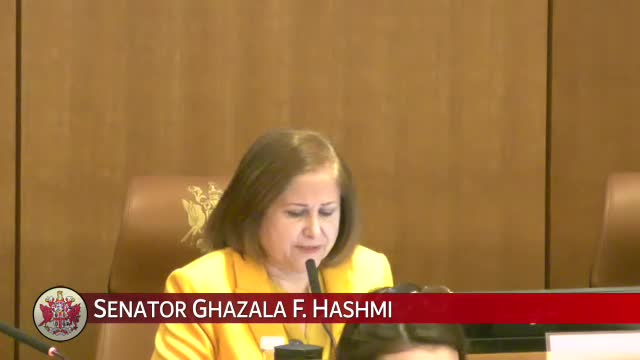Virginia health secretary outlines six priorities, highlights behavioral health and maternal care
Get AI-powered insights, summaries, and transcripts
Subscribe
Summary
Secretary of Health and Human Resources Janet Kelly presented six bipartisan priorities to the Senate Committee on Education and Health, emphasizing behavioral health investments, maternal health, kinship care, long-term care oversight, water infrastructure, and reallocation of unused waiver slots.
Secretary of Health and Human Resources Janet Kelly told the Senate Committee on Education and Health on Jan. 9 that her office will focus this session on six bipartisan priorities, including behavioral health expansion, maternal health, kinship care supports, long-term care oversight, drinking water infrastructure, and faster use of unused waiver slots for developmental services.
Kelly, who said she has personal experience as a consumer of multiple HHR services and described the agency as a “mega secretariat,” told the committee that the secretariat employs more than 15,000 Virginians and represents about one-third of the state budget. “We cover everything from opioids to oysters to obesity and everything in between,” she said.
The secretary emphasized behavioral health funding as a multiyear effort. Kelly said investments since 2022 have built more than 100 mobile crisis teams operating 24/7 with average response times under an hour, expanded crisis receiving centers and stabilization units, and tripled available treatment spots. She noted Governor Anken’s proposed $70 million in the budget to support further behavioral health initiatives and urged support for special conservators of the peace (SCOPs) as a public- and patient-safety measure.
On maternal health, Kelly cited 2021–2022 pregnancy-associated death totals (64 in 2021, 67 in 2022) and the predominance of medically preventable causes. She said cardiovascular and mental health conditions were the two main drivers in recent data and that the governor proposed additional funds to expand perinatal hubs, residency slots, doulas and community health workers, and a maternal health education campaign. She also referenced legislation to standardize obstetric emergency protocols, called “safety bundles.”
Kelly described kinship care as a decade-long policy effort that gives relatives and close family friends clarity and support when children are placed outside their parents’ homes. She credited Senator Barbara Favola and others for bipartisan work that she said has kept more than 1,000 children with extended family or friends instead of foster care.
On long-term care, Kelly said Virginia’s nursing homes rank 38th nationally and that complaints rose 64% from 2019 to 2023. She said the administration proposes intermediate sanctions and increases to licensing fees to allow the Virginia Department of Health to staff licensing and regulatory offices adequately.
Kelly also announced that the Commonwealth was released from a decade-long U.S. District Court settlement involving the Department of Behavioral Health and Developmental Services, which she said will allow improved access to services for people with developmental disabilities. She said DBHDS is proposing reallocation of unused Medicaid waiver slots to ensure quicker use for those in need.
Finally, Kelly urged lawmakers to address fragile drinking water infrastructure and said the governor proposed $2 million for the Office of Drinking Water. She closed by inviting committee members to contact her office and said several of her staff were present to testify on specific items later in the session.
Ending: The committee thanked Kelly for the presentation and fielded brief questions, including requests for data and for staff to share more detailed information by email to support upcoming bills.
